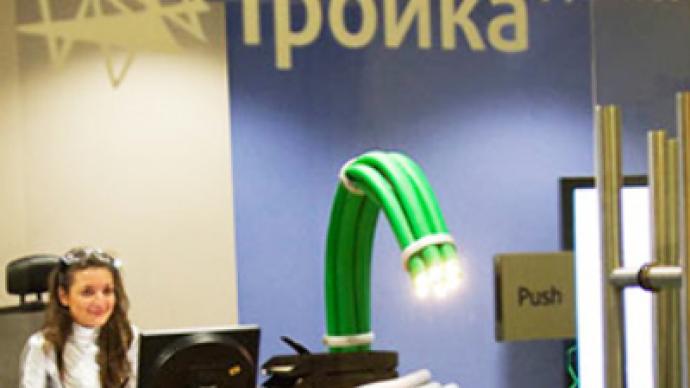Lessons of the Lehman Collapse:Troika Dialog Group

Two years after the collapse of Lehman Brothers sent a shockwave through global financial markets Business RT spoke with Peter Ghavami, a head of Global Markets at Troika Dialog Group, about the impact and lessons.
RT: At the time how stressful was it for traders on a day to day basis? What issues were they facing in trying to keep trading as the environment was rapidly becoming worse?
“I worked for Lehman at the time, I was head of capital markets for Lehman in Russia. So, I was there when we came to the painful process of the Lehman bankruptcy. So, I would make several comments. First, anyone who had predicted beforehand that Lehman was going bankrupt, absolutely didn’t know what they were talking about. Nobody would have predicted that the U.S. Government would have allowed a bankruptcy of this kind of a company.
What was very clear is that there was a need for significant restructuring, and the market consensus at that time was that it likely was going to be a restructuring along with Bear Sterns.
Nobody expected that the Government wouldn’t help and because of that the trading came to a halt.
Some people called it a massive heart attack that hit a financial system, and, I think, that’s a good way to describe it, as overnight trust evaporated. Trust is what allows the banking system function. And the banking system is in the heart of not only the financial system, but the real world, as well. So, without banks lending money you had a complete collapse, effectively, of the economic system and of global trade.”
RT: At that time did people understand the full impact that the collapse could have had?
“I hope that they didn’t, because if they did and they did allow the company to go bankrupt, that was almost criminal.”
RT: What have global markets learned from the turbulence of late 2008?
“One of the lessons taken from the collapse is that the amount of leverage that you can allow into the banking system, is now much lower than you could allow before 2008. There clearly has been a move towards an increased capitalization of banks, reduced leverage, closer focus on how banks are being compensated for taking on risks, and also the types of risks the banks are taking on. For example, should you be allowed to take a risk on your own account or should you be an intermediary of your facilitator of risk.”
RT: What are the implications for Russian economy?
“Interestingly, I think, that, for Russia, the crisis proved to be a good thing, because one of the greatest things that came about because of the crisis is the realization that you can’t rely solely on international markets to finance yourself. If you think why Russia was hit hard by the crisis, you can really limit it to 2 sectors: banks and the corporate sector, both of which relied on international markets for financing. What we now have is a very robust rouble market, which in large part, has replaced funding internationally for corporates. That’s a very good development.”
RT: Can you estimate the damage the crisis brought about in Russia?
“The easiest way to estimate the crisis is to use GDP numbers and look at declining GDP in Russia versus the expected growth of GDP had the crisis not happen. And if you have GDP in Russia of about $ 1.5 trillion and you have it declining 8% because of the crisis, then you are looking at the cost of over a hundred billion dollars. And if you add to that the expected growth that was 6%, you can add $90 billion. So, all in all the cost of the crisis for Russia is around $200 billion.”
RT: Do you think, we’ll see the 2nd wave of the crisis?
“We are not going to see the 2nd wave. Globally speaking, I expect a stagnant environment where we have growth, which is, in fact, stagnation. I see that the global growth rate over the next 3-5 years will be much lower than we would have expected otherwise.
On the other hand, I think that in Russia the crisis has already reached its end. There's of course some work to do in terms of the budget deficit, for example, that Russia is now experiencing. But if you look around the world, the Russian macroeconomic picture is actually one of the strongest of any country. The reason for that is that Russia entered the crisis with a significant surplus of money, very low levels of debt, inflation in Russia has decreased, although during the summer time it started creeping up again, and it’s something we need to be careful about. But the fundamentals in Russia are pretty good, and you couple that with undervaluation of Russian equity markets, which makes for a very compelling story to invest in Russia relative to other countries in the world."
RT: The second anniversary of the collapse is only a week after the Basel 3 banking regulations have been adopted. Will they improve investor confidence going forward?
“I think, that Basel 3 accord will increase confidence in the banking market, which is very important, but we should keep in mind that the accord allowed for a 8 – year period meet the new more stringent criteria. And the reason for a 8 – year period is very simple – it’s just a reflection of the fact that getting to the increased capital levels is a very costly proposition.
It’s definitely a step in the right direction, but it’ll certainly take time.
And I don’t expect any special issues in case of Russia, as the key Russian banks are very well capitalized.”












